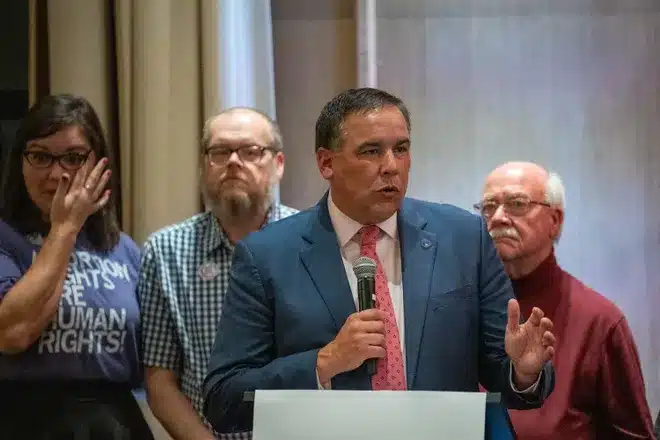In 2016, Andrew J. Ginther took the helm as Columbus’s mayor, and since then, the city has experienced unprecedented growth. To address the challenges posed by this rapid expansion, Ginther is advocating for a revolutionary approach to housing development.
Ginther recognizes the urgency of the situation and is determined to reshape the city’s housing landscape. Residents’ feedback has shown openness to greater density and taller buildings in neighborhoods, reflecting the need for innovative solutions.
Re-elected for a third term, Ginther is spearheading the Columbus Housing Strategy, a bold initiative aimed at doubling the annual production of housing units to match job creation. The strategy acknowledges the current shortfall in housing construction and emphasizes the importance of smart policies to overcome barriers.
To tackle rising construction costs, Ginther’s administration has proposed expanding the city’s residential tax incentive policy. This move aims to attract investment, accelerate development, and ensure affordable housing opportunities are not confined to specific neighborhoods.
Ginther emphasizes that housing should be accessible to everyone in opportunity-rich neighborhoods at affordable prices, challenging the notion that the free market alone can meet this demand. He proposes policy changes to accelerate housing construction, including modernizing the outdated zoning code.
Engaging residents in the process, the city is seeking input on a modernized zoning code through surveys and community involvement. The goal is to eliminate outdated regulations and streamline the construction process, addressing the housing shortage efficiently.
Ginther’s forward-thinking approach draws inspiration from successful models in cities like Austin and Seattle, ensuring Columbus remains affordable, equitable, and livable. The upcoming presentation of a new zoning map signifies the city’s commitment to transparency and public involvement.
As spring approaches, Ginther remains enthusiastic about these policy changes, emphasizing the importance of education and community engagement. He stresses that inaction is not an option and positions the housing crisis as a regional challenge that requires collaboration beyond Columbus.
While acknowledging that Columbus cannot solve this crisis alone, Ginther asserts that the city is leading the way—a responsibility they were elected to fulfill. The blog post underscores the collaborative efforts needed to address the housing crisis and emphasizes Columbus’s commitment to proactive solutions.
Related posts:
 Europe’s Housing Market Squeezed Amidst Cost-of-Living Crisis
Europe’s Housing Market Squeezed Amidst Cost-of-Living Crisis
 Increase in US Home Construction in 2023 Signals Robust Market Recovery
Increase in US Home Construction in 2023 Signals Robust Market Recovery
 Increased Housing Confidence Brightens 2024, But Buying a Home Still Tough
Increased Housing Confidence Brightens 2024, But Buying a Home Still Tough
 Canada Bans Foreign Homeownership Until 2027 to Help People Afford Homes
Canada Bans Foreign Homeownership Until 2027 to Help People Afford Homes
 Housing Market Crash in 2024: Unpacking the Truth Behind Rising Concerns
Housing Market Crash in 2024: Unpacking the Truth Behind Rising Concerns



